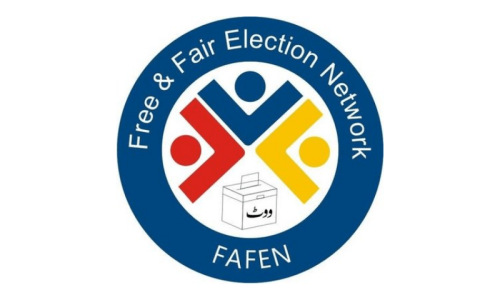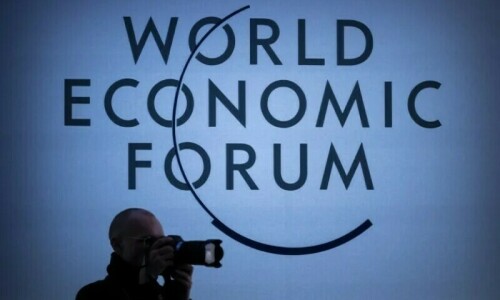
ISLAMABAD: Although the number of political parties has gone up over the past few years, the trend of forming electoral alliances seems to have vanished.
This is evident from the fact that almost all major political parties keep discussing seat adjustments for the coming general elections, but no effort is seen by them to form an electoral alliance to contest the polls from one platform and under one symbol.
The Muttahida Deeni Mahaz (MDM), a group of five small religious parties and groups headed by Maulana Samiul Haq of the Jamiat-Ulema-i-Islam-Sami (JUI-S), is the only electoral alliance that is fielding its candidates in the May 11 elections. Its symbol is ‘ladder’.
Most of the electoral alliances in the past, according to a number of political experts, were formed by right wing forces with the tacit support of the establishment and with an aim to stop liberal and progressive parties from coming to power.
The history of political alliances in the country actually dates back to 1973 when all opposition parties of that time minus Asghar Khan’s Tehreek-i-Istaqlal (TI) and JUP-Noorani had announced the formation of the United Democratic Front (UDF) to confront the PPP-led government inside and outside the parliament.
However, the first major electoral alliance emerged when nine opposition parties met in Lahore in January 1977 after the announcement of the elections and decided to contest the polls from one platform named Pakistan National Alliance (PNA). The PNA fielded candidates in all constituencies and the elections had become a straight fight between the PPP and the PNA.
The parties in the PNA were Pakistan Muslim League (PML), Jamaat-i-Islami (JI), Jamiat Ulema-i-Islam-Mufti, Jamiat Ulema-i-Pakistan, the TI, Pakistan Democratic Party, National Democratic Party, Khaksar Tehreek and Jammu and Kashmir Muslim Conference. The electoral symbol of the alliance was the ‘plough’.
Alleging rigging in the polls, the PNA rejected the results and launched an agitation throughout the country that culminated in the imposition of martial law by the then army chief, Gen Ziaul Haq, on July 5, 1977.
The nation went into elections again in 1985, but this time polls were held on non-party basis.
After the death of Gen Zia, party-based elections were announced in 1988 and the nation witnessed another nine-party alliance — the IJI.
The IJI comprised the PML, JI, JUI, National People’s Party (NPP), Nizam-i-Mustafa Group, Markazi Jamiat Ahle Hadith (Lakhvi), Jamiat Mashaikh Pakistan (JMP), Azad Group and Hizbullah Jihad.
These parties and groups contested the election under the symbol of the ‘bicycle’ against the Benazir Bhutto-led PPP with the symbol ‘arrow’.
In the 1990 elections, the IJI was again in the field, but this time the PPP had also made an electoral alliance — the People’s Democratic Alliance (PDA). The other three parties in the alliance were TI, Tehreek-i-Nifaz-i-Fiqah Jafaria (TNFJ) and PML-Qasim.
In the 1993 elections the nation saw three new election alliances — Muttahida Deeni Mahaz (MDM), National Democratic Alliance (NDA) and Islami Jamhoori Mahaz (IJM). However, only the IJM had managed to get four seats whereas two other alliances were completely routed.
All these alliances, however, disappeared before the 1997 elections, which could be termed unique in the sense that political parties had not formed any alliance that time.
Before the 2002 elections, six major religious parties decided to form an alliance, namely Muttahida Majlis-i-Amal (MMA). The MMA had been formed to tap into anti-US feelings spawned by the decision of Gen Pervez Musharraf’s military government to side with the United States in its ‘war on terror’.
The six parties in the MMA were JUI-F, JI, JUI-S, JUP-N, Jamiat Ahle Hadith and Tehreek-i-Islami. The electoral symbol of the MMA was ‘book’.
It was for the first time in the country’s history that religious parties emerged as the third largest parliamentary group in the National Assembly.













































Dear visitor, the comments section is undergoing an overhaul and will return soon.